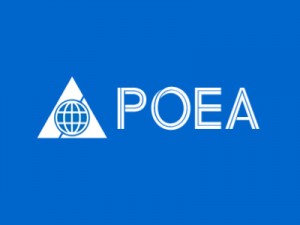Manila and Tokyo will conduct before the end of the year a “general review” of the Japan-Philippines Economic Partnership Agreement (Jpepa) and its economic fruits as mandated by the 2008 treaty.
Kenji Hirai, press officer of the Japanese Embassy in Pasay City, on Monday noted that “2011 is the first year of a general review based on Article 161 of Jpepa.”
“Japan and the Philippines have held subcommittee meetings and are scheduled to conduct a general review based on the results of those meetings,” Hirai told the Inquirer.
The agreement has spawned some controversy pertaining particularly to its provision prohibiting the transport of toxic waste to either country and the one on the recruitment of Filipino health care workers to Japan.
Hirai noted that in 2008, Japan was the “second largest trading partner of the Philippines in terms of both imports and exports.”
But by 2010, the north Asian country “became the top destination of Philippine exports, as well as the biggest source of Philippine imports during the past two years.”
“As for direct foreign investment, Japan’s FDI in the Philippines has expanded since 2008,” Hirai said.
The Department of Trade and Industry is the lead agency overseeing Jpepa’s implementation in the country, said Raul Hernandez, Department of Foreign Affairs (DFA) spokesperson.
“The DFA follows its lead,” he said.
In late January, then Japanese Ambassador to the Philippines Makoto Katsura said they were “very happy to see very good, positive results since the entry into force of Jpepa.”
Katsura cited the growth of Philippine exports to Japan, particularly raw goods, as well as the rise in Japanese foreign direct investment in the Philippines.
The envoy expressed confidence Tokyo and Manila would work toward full implementation of the pact, which was signed on Sept. 9, 2006, in Helsinki, Finland, by then President Gloria Macapagal-Arroyo and Japanese Prime Minister Junichiro Koizumi.
The agreement aims to, among other things, liberalize and facilitate the trade in goods and services between the two countries; increase investment opportunities; enhance protection of intellectual property; promote transparency in government procurement; and establish a framework for further bilateral cooperation and improvement of the country’s business environment.


